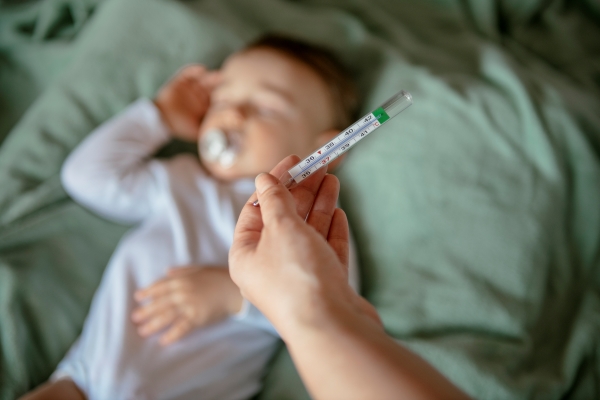Study Identifies Viral Combinations That Heighten Risk of Severe Respiratory Illnesses in Infants
 DENVER - A new study led by researchers at National Jewish Health has revealed that, while a wide range of viruses can cause lower respiratory tract illnesses (LRIs) in infants, certain viruses and viral combinations dramatically increase the risk of severe disease. The findings, published this month in Journal of Infection, come from the Puerto Rican Infant Metagenomic and Epidemiologic Study of Respiratory Outcomes (PRIMERO), which followed more than 2,000 children from birth to age two between 2020 and 2024.
DENVER - A new study led by researchers at National Jewish Health has revealed that, while a wide range of viruses can cause lower respiratory tract illnesses (LRIs) in infants, certain viruses and viral combinations dramatically increase the risk of severe disease. The findings, published this month in Journal of Infection, come from the Puerto Rican Infant Metagenomic and Epidemiologic Study of Respiratory Outcomes (PRIMERO), which followed more than 2,000 children from birth to age two between 2020 and 2024.The research, led by Max A. Seibold, PhD, and his team at National Jewish Health, is one of the most detailed examinations to date of how multiple viral species interact in early life to influence respiratory illness severity and potential future asthma risk.
“We found that whether upper respiratory tract infections in early-life result in lower airway symptoms is strongly related to the virus involved,” said Dr. Seibold, director of the Regenerative Medicine and Genome Editing Program (REGEN) at National Jewish Health. “While viruses like RSV and metapneumovirus inherently carry a high risk of severe lower airway infection, others such as rhinovirus and bocavirus are much more likely to be dangerous when they are present together or in combination with other viruses.” These insights help us better understand why some early-life viral infections cause relatively minor colds, while other infections result in severe respiratory illnesses.
The study found that respiratory syncytial virus (RSV) infections conferred the highest risk of severe lower respiratory illness in infants, increasing the odds of serious illnesses nearly ninefold. Other viruses such as metapneumovirus, parainfluenza, and common coronaviruses were also linked to higher risk of severe disease. In contrast, rhinovirus and bocavirus, despite being the most frequently detected viruses in severe illnesses, were just as likely to cause a mild cold as a severe illness. However, the risk associated with these viruses increased when infants were infected with both rhinovirus and bocavirus at the same time. Specifically, co-infection with rhinovirus and bocavirus nearly tripled the odds of developing a severe lower respiratory infection compared to being infected with just one of the viruses. Interestingly, SARS-CoV-2 infections were associated with a lower risk of severe illness in infants, suggesting that young children may have unique immune responses that protect them from the more serious outcomes often seen in adults.
Researchers say the findings underscore the importance of comprehensive viral surveillance and targeted prevention strategies, especially for high-risk populations such as Puerto Rican infants, who experience disproportionate rates of asthma and respiratory disease.
“Understanding which viruses or viral combinations lead to the most severe outcomes can inform early interventions,” said Camille Moore, PhD, the study’s lead author. “This includes vaccination strategies and better clinical monitoring for infants with co-infections.”
National Jewish Health is the leading respiratory hospital in the nation delivering excellence in multispecialty care and world class research. Founded in 1899 as a nonprofit hospital, National Jewish Health today is the only facility in the world dedicated exclusively to groundbreaking medical research and treatment of children and adults with respiratory, cardiac, immune and related disorders. Patients and families come to National Jewish Health from around the world to receive cutting-edge, comprehensive, coordinated care. To learn more, visit njhealth.org or the media resources page.
Media Resources
We have many faculty members, from bench scientists to clinicians, who can speak on almost any aspect of respiratory, immune, cardiac and gastrointestinal disease as well as lung cancer and basic immunology.
Media Contacts
Our team is available to arrange interviews, discuss events and story ideas.
- Jessica Berry
303.398.1082 office
303.807.9491 mobile
berryj@njhealth.org - Adam Dormuth
303.398.1002 office
970.222.5034 mobile
dormutha@njhealth.org
